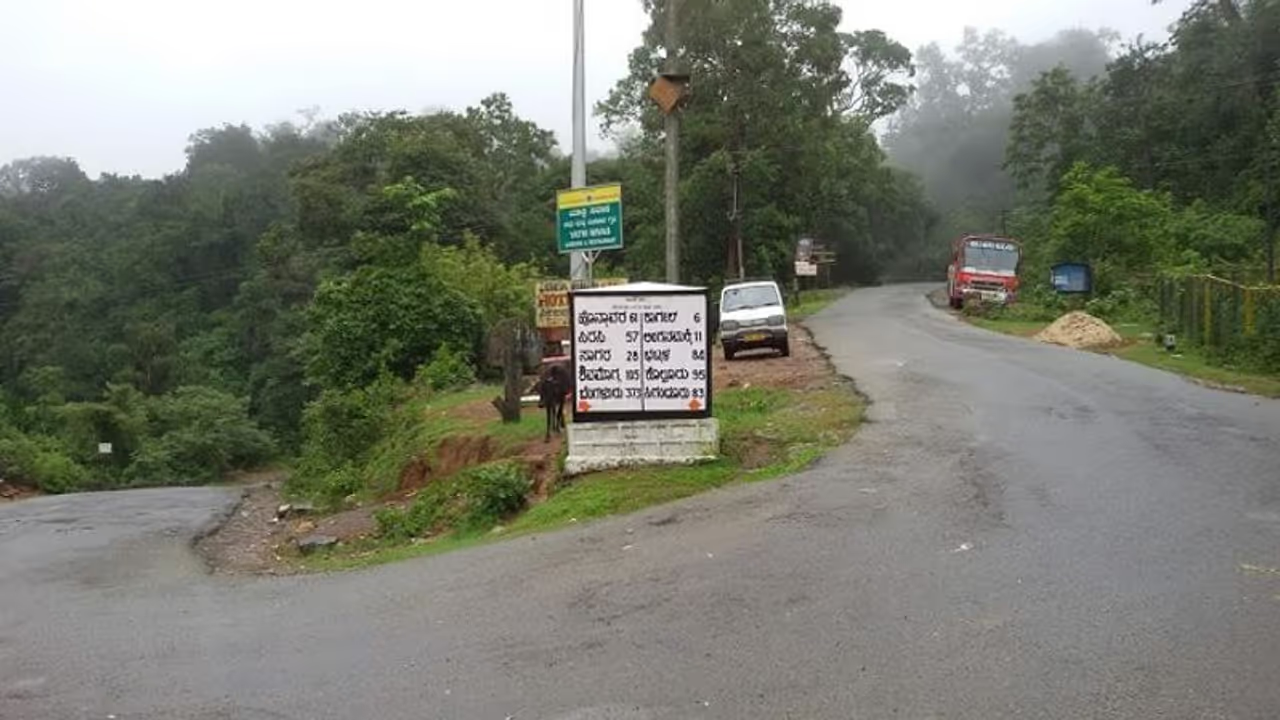The road widening project in Agumbe Ghat, India, raises environmental concerns, potentially affecting over 4 lakh trees, rare plant species, and local wildlife. Environmentalists emphasize the need to address the impact on the ecosystem and control vehicular speed to protect the area's biodiversity and balance. The project aims to improve road accessibility due to frequent accidents on narrow, winding roads.
The road widening project in the biodiversity habitat of Agumbe Ghat has raised concerns about its environmental impact and wildlife in the region. The Highways Authority plans to appoint an agency at its Bengaluru regional office to prepare a detailed project report for the widening of National Highway 166A, which connects Agumbe Ghat in the Malenadu region to the Coastal area. Concurrently, the authority has sought approval from the Wildlife Conservation Department in Delhi for the widening of the Mala Ghat-Sringeri road, both of which fall under the jurisdiction of the Kudremukh Wildlife Division.

The planned widening project involves expanding the existing 3.5-meter-wide highway to a total width of 10 meters. The stretch from Agumbe Ghat to Hebri covers a distance of 21 km, while the Mala Ghat to Tanikodu Check Post route extends over 40 km. This ambitious road development initiative is expected to have a significant impact on the rich forest cover along these routes, potentially leading to the destruction of over 4 lakh trees. The region is home to invaluable plant species like Balige, Pundikai, and Ayurvedic medicinal plants. Moreover, the proposed development could alter the flow direction of three waterfalls and more than 20 streams, resulting in further environmental disruption.
Karnataka rain: Heavy vehicles banned at Agumbe ghat till September 15
One of the major concerns raised by environmentalists is the potential increase in vehicle movement and speed within the sanctuary after the widening of these highways. The greater vehicular activity is expected to pose a significant danger to the diverse range of animals and reptiles inhabiting the area. To address these concerns, experts argue that precautions should be taken to limit vehicle speeds and minimize the impact on the local wildlife.
The need for widening these highways arises from the fact that the Malpe-Monakalmuru National Highway passes through Agumbe Ghat, where the existing narrow and winding roads have been a frequent site of accidents. Currently, only small-sized vehicles are able to navigate the treacherous terrain, and widening the roads aims to enhance the accessibility for all types of vehicles.
Karnataka: Talaguppa-Hubli railway route demarcation, check passing districts
Agumbe is renowned as one of the rainiest places in India and is often referred to as the "Cherrapunji of the South." The Agumbe Ghat consists of a total of fourteen turns, with the upper seven turns located in the Shimoga district and the lower seven in the Udupi district. The region falls under the sensitive zone of the Kudremukh Wildlife Division.
Environmentalists and conservationists argue that deforestation in the area has already disrupted the balance in the environment, causing alterations in weather patterns. The potential loss of such a significant number of trees further exacerbates concerns, as it could lead to adverse consequences, including shifts in rainfall patterns, impacting the water supply in the region. Environmental activist Sahyadri Sanchaya Dinesh Holla warns that the destruction of the forest is forcing wild animals to venture closer to human settlements, posing additional challenges to the local ecology.
